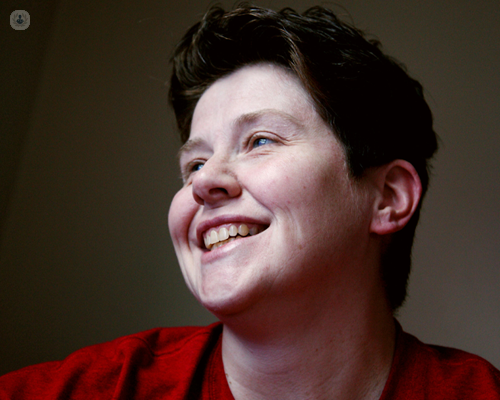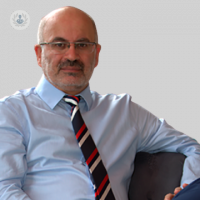What is gender reassignment surgery (GRS)?
Autore:In today’s society we are continually progressing and gender norms are expanding. As a result, many people are becoming true to themselves and choosing to undergo gender reassignment surgery, to ensure that they are happier in their own skin. But what is GRS and how does it work? Trusted consultant plastic surgeon Mr Ardeshir Vahidi answers all questions you need to know about the surgery.

What is gender reassignment surgery (GRS)?
Generally, people's perceptions regarding gender reassignment surgery is that it’s specifically genital surgery. However, that's not necessarily the case. There are many types of gender assignment surgeries available. This is called GRS or GCR, so, this can be facial surgery; feminising or masculinising surgery, lip augmentation, jawline management. They're all connected to gender assignment surgery.
So, it depends on who is asking, and for what reason. Then, I'll be able to give accurate responses and to advise and help my patient to understand that.
What are the different types of GRS?
This is exactly what I was saying; that there are different surgeries aiming to align the gender and the physical, matching the psychological reasons for patients. I don't want to use the term 'patient', because it isn't about being a medical patient. It's about complete necessity of the person who wants to be exactly as they want to be. They don't want to be confused, so when someone comes asking for gender reassignment surgery, we have to understand that what's in their minds, what they're expecting and who they actually are.
What are the risks and benefits of gender reassignment surgery?
There's no surgery without risks. Every kind of surgery presumes that you can have scarring, bleeding, local infection, Sometimes, if it's regarding the wound there can be delayed healing or collection of the blood under the skin (haematoma). There can be asymmetric scarring, which can be another risk or complication.
However, the most dangerous things are DVT (deep vein thrombosis) and pulmonary embolism (PE). There are some assessments we do before the patient undergoes the surgery, and we assess the patient fully from A to Z. This is to make sure we're minimising risks. This is important.
What is the recovery process like after GRS?
Again, it depends on the magnitude of the surgery, and the patient's specific healing process. Even a very small wound will take 14 days to heal completely. However, the process starts exactly from the day that the surgery finishes, where's there some recovery from a mental and psychological point of view. Regarding the wound itself, if a patient has top surgery for example, they don't heal in three days and take 14 days to settle down. Then, we'll change the dressings and we'll review in six weeks, six months, and then one year. The process depends on what type has been done. For a surgical lip augmentation, it will take a few days to a week.
What are the psychological effects of GRS?
I remember in 2003 when I registered my idea and term 'psycho-aesthetics', as intellectual property, my aim was that anything except in emergencies or accidents that require A&E attention, requests behind plastic surgery have psychological reasons behind them. Especially when we're talking about gender assignment. It has huge implications from a psychological point of view. We're dealing with people who want psychological peace in their mind, and to be able to adapt themselves as they are in this society, and that's the major problem for our cases. That's what I'm trying to do; to make sure that patients will be happy as who they are, and what they want to be.
What are the resources available to me if I am considering GRS?
I don't want to say that I'm an exceptional surgeon, so, I'm asking my old patients, beside the psychological referral letter by a psychiatrist or psychologist, to send me a personal letter where they're describing their feelings. The reason I'm asking this is just to ensure that they've acknowledged their position and situation well. For example, if you go to a doctor and you display so much emotion in their presence, you might be at a loss for words or struggle to express yourself. However, if you sit down and write about your feelings and your transition journey, it will give more power for me to understand why I'm doing this. So that's very important.
If you're considering gender reassignment surgery, arrange a consultation with Mr Vahidi via his Top Doctors profile.


